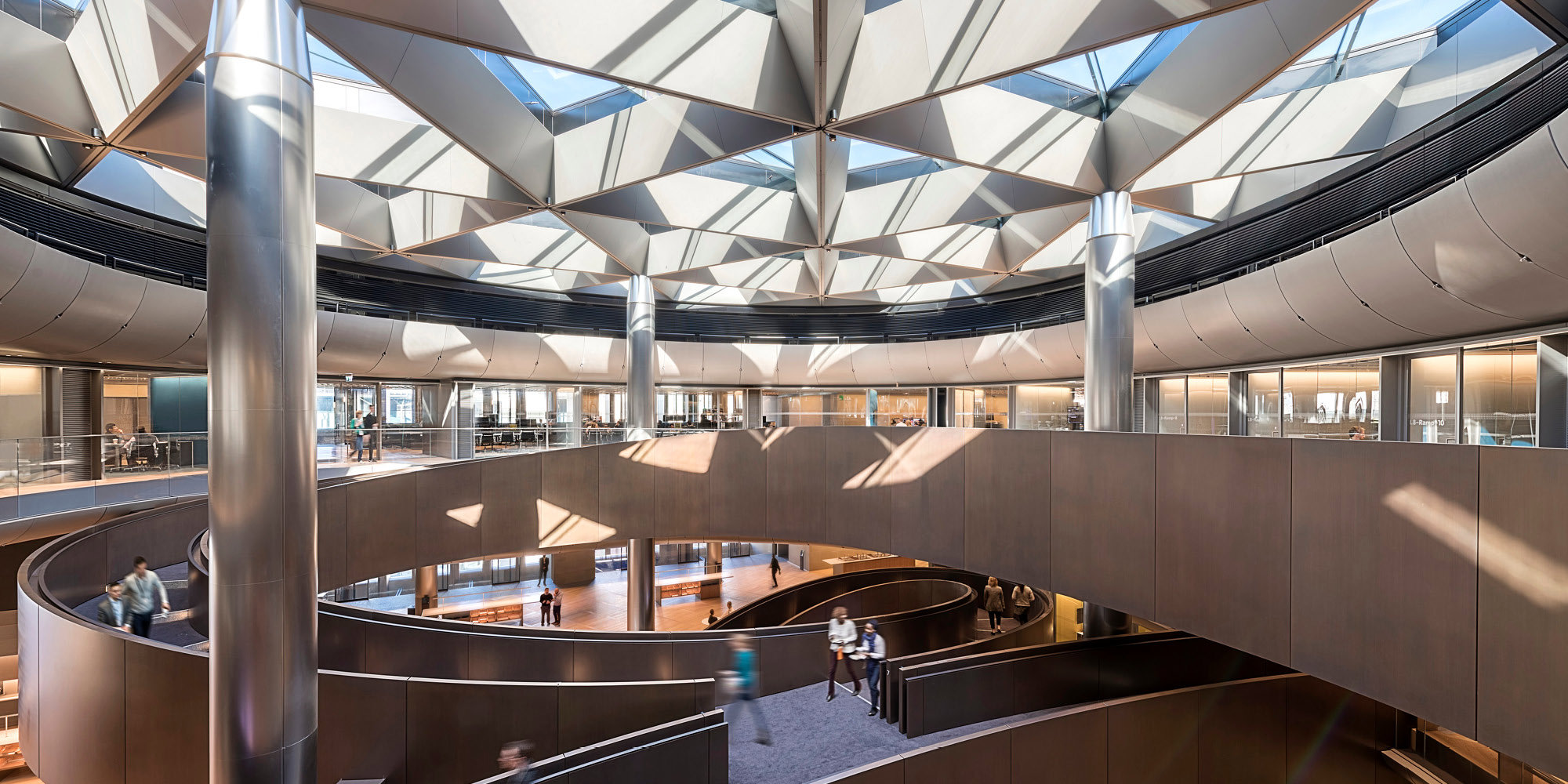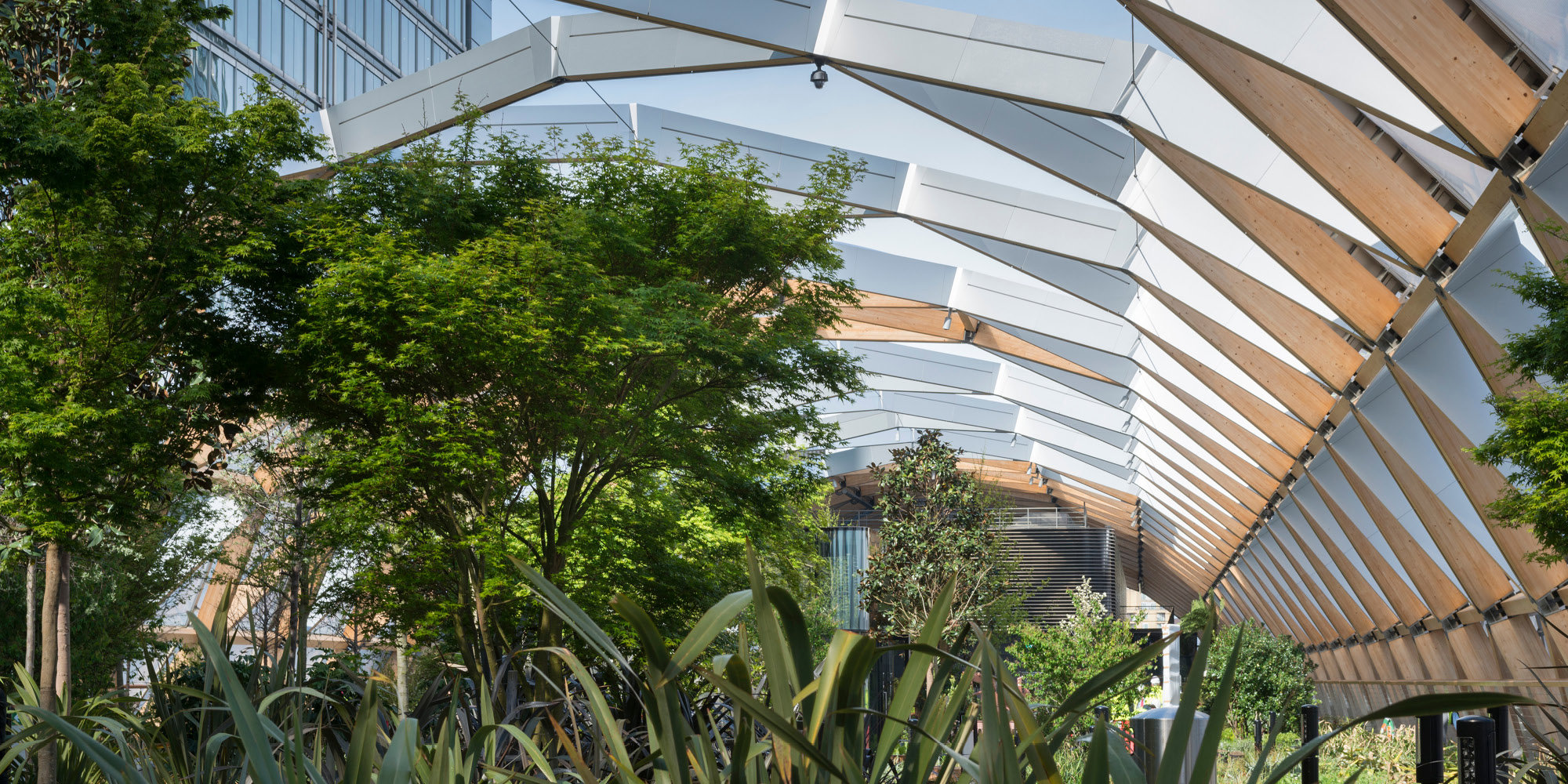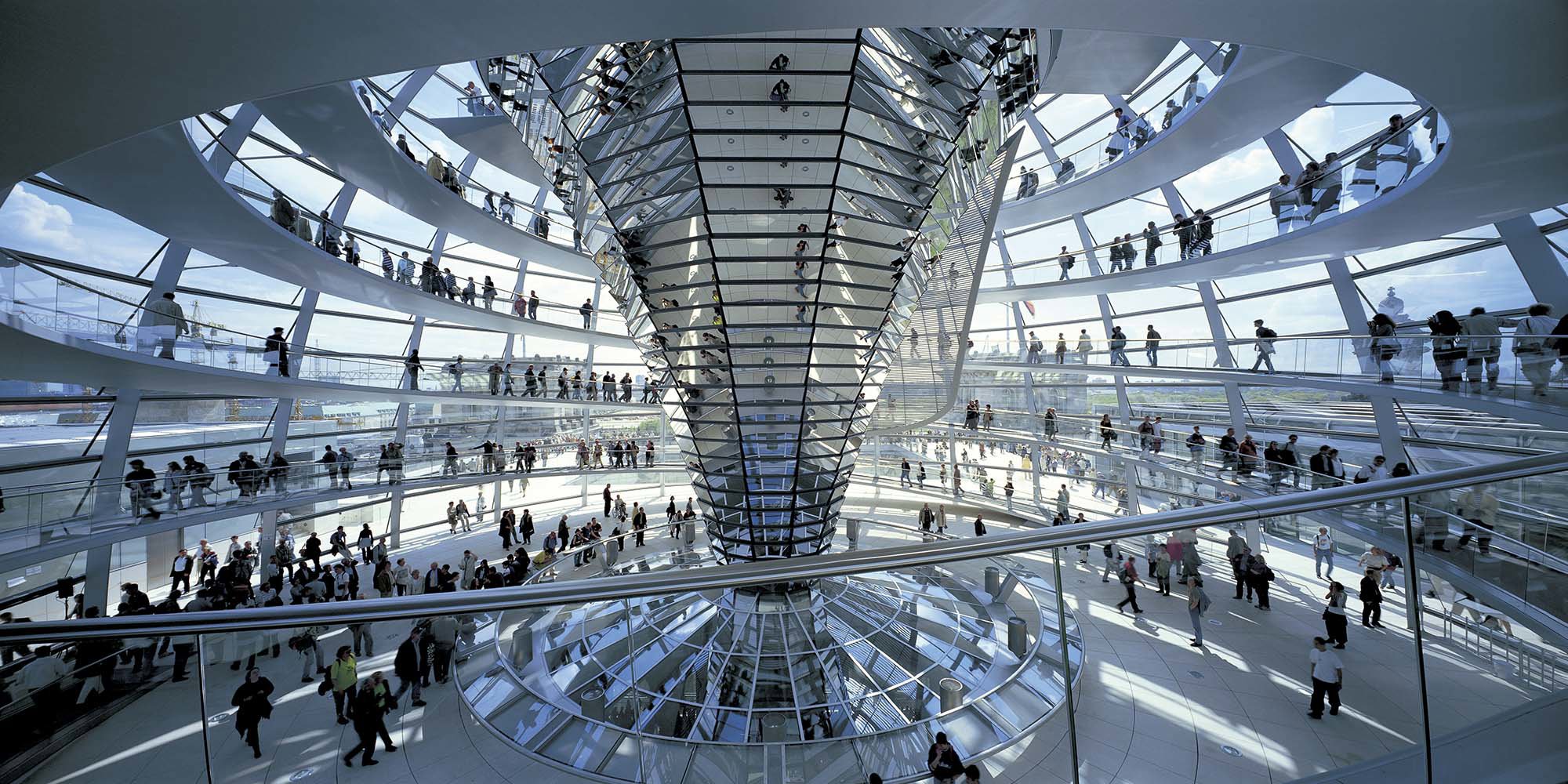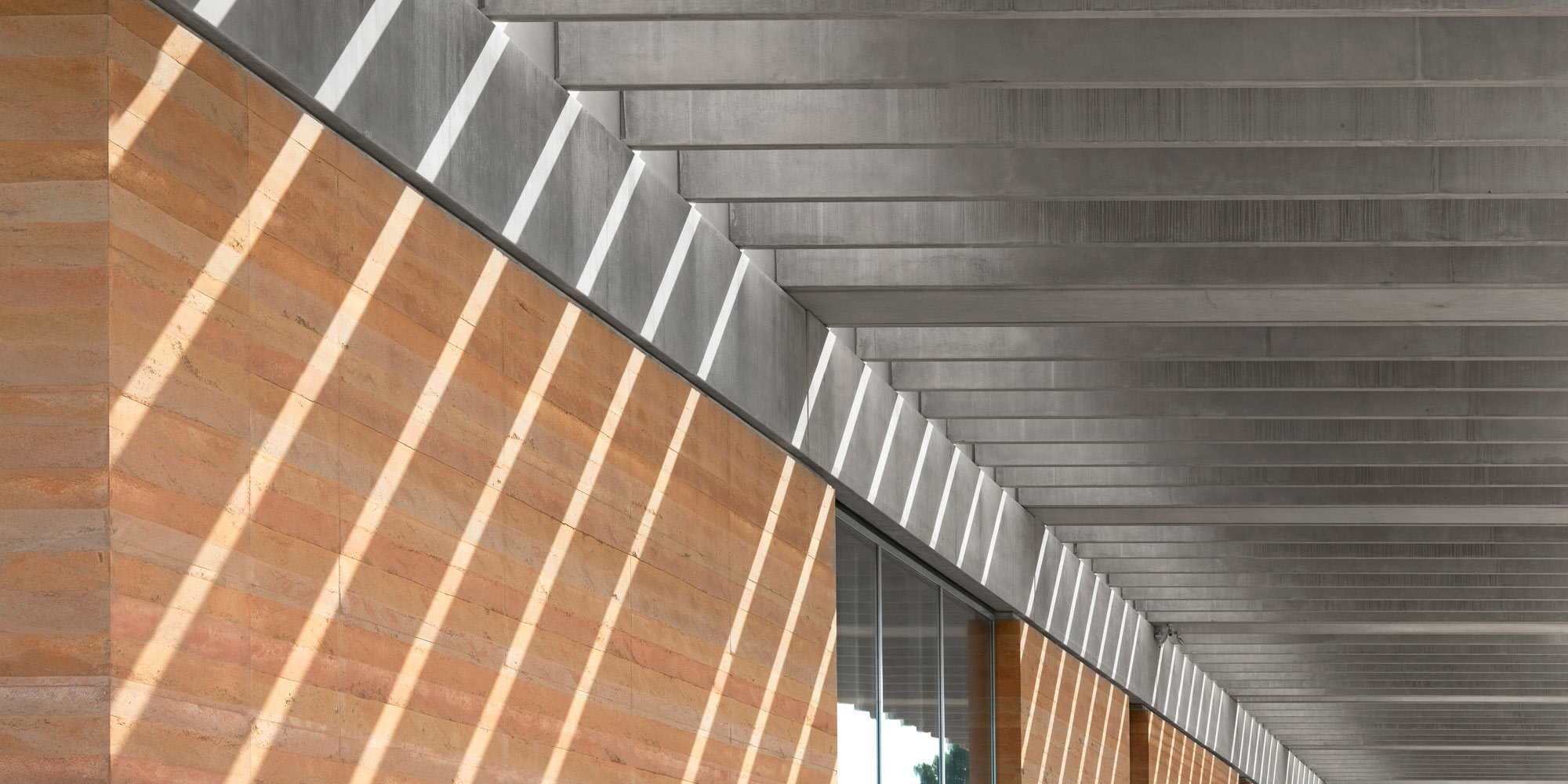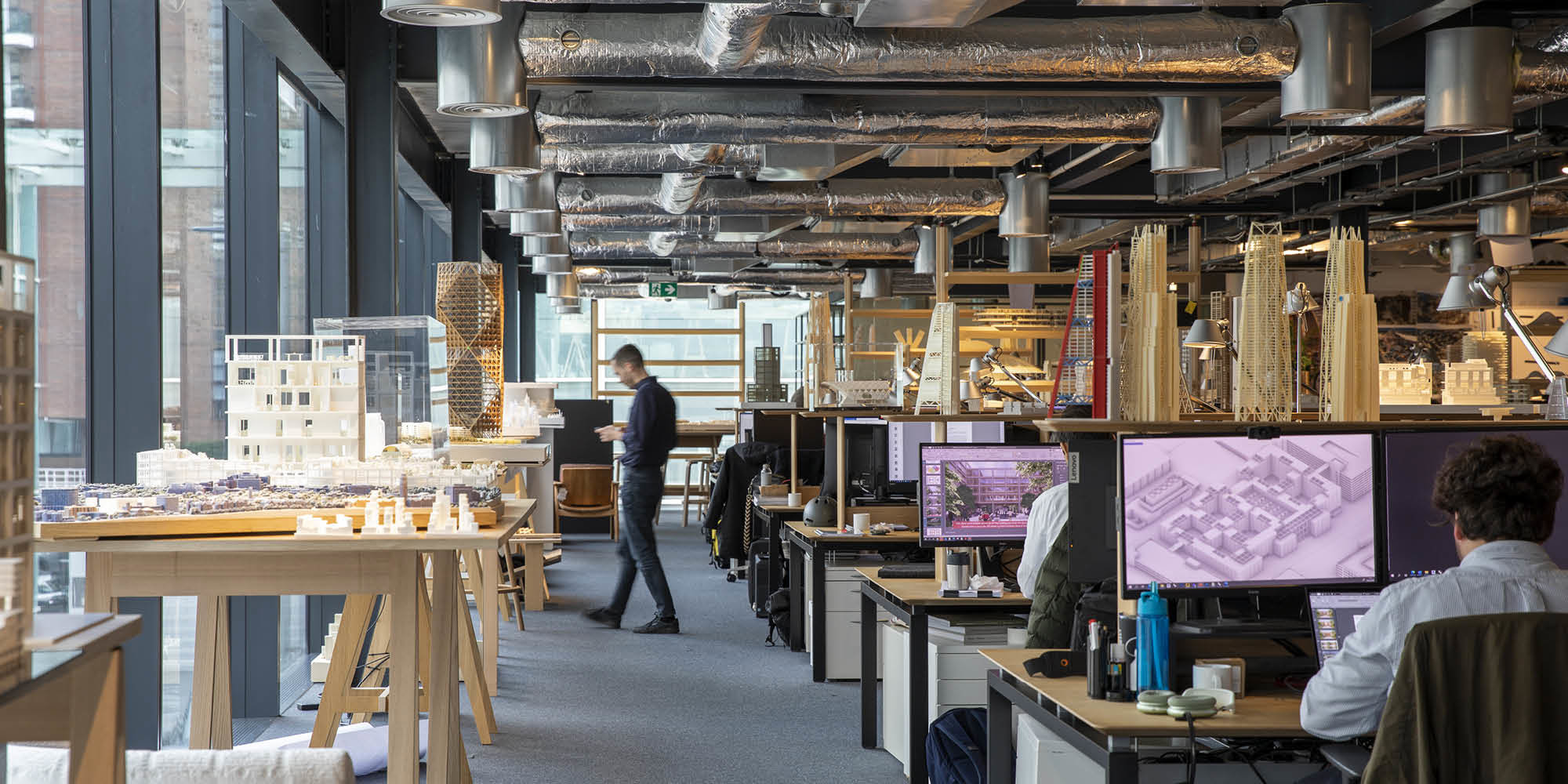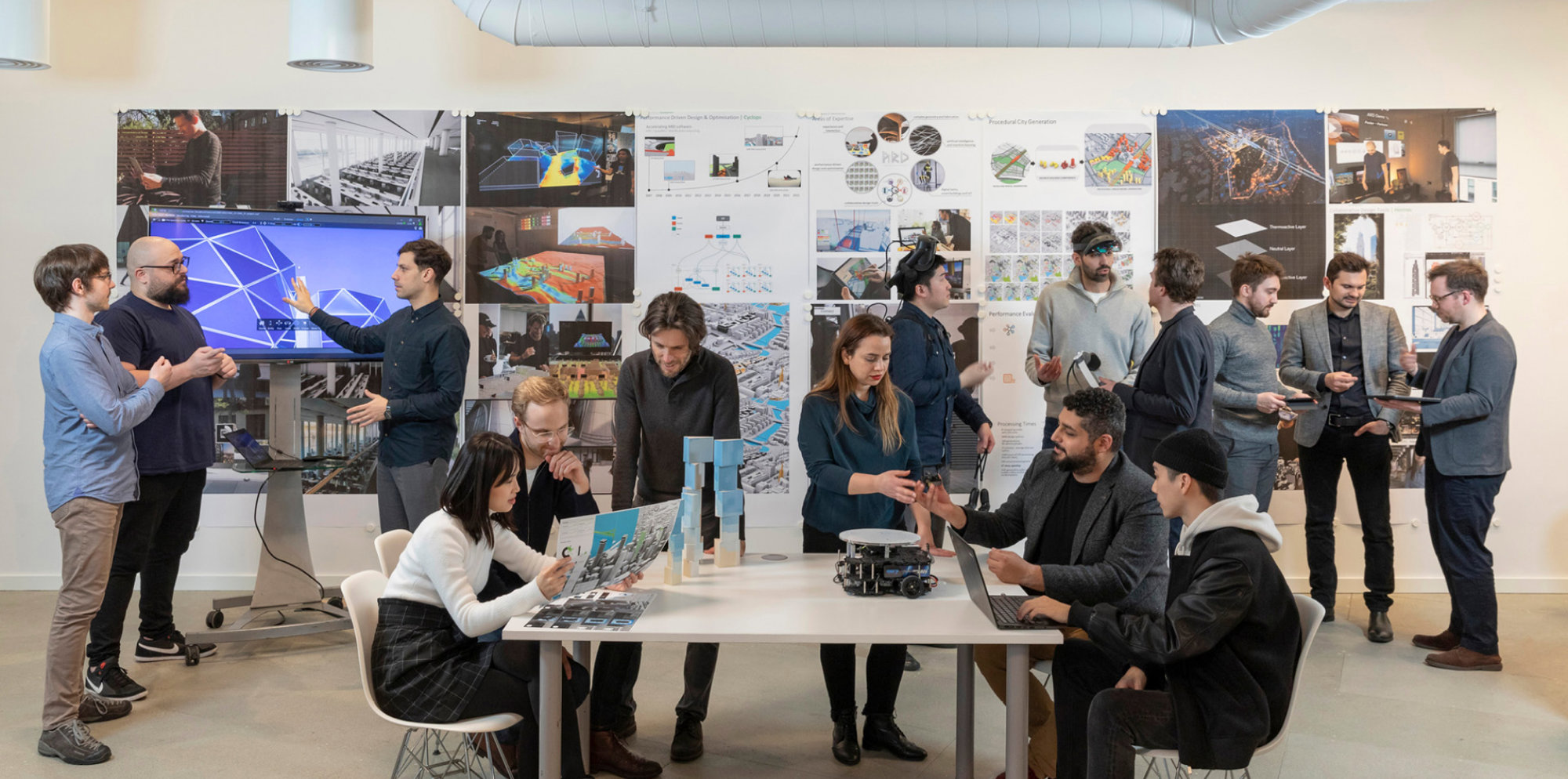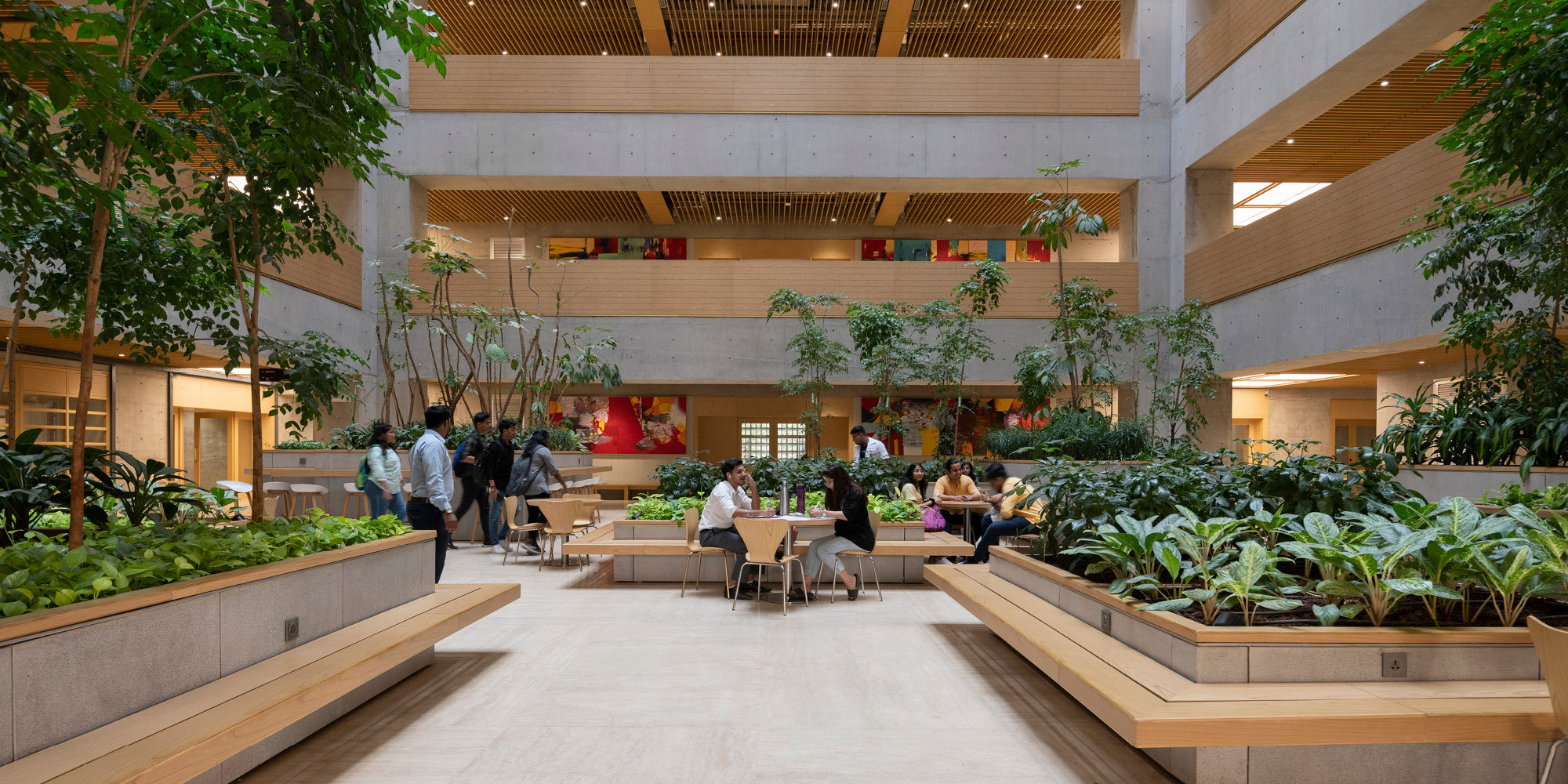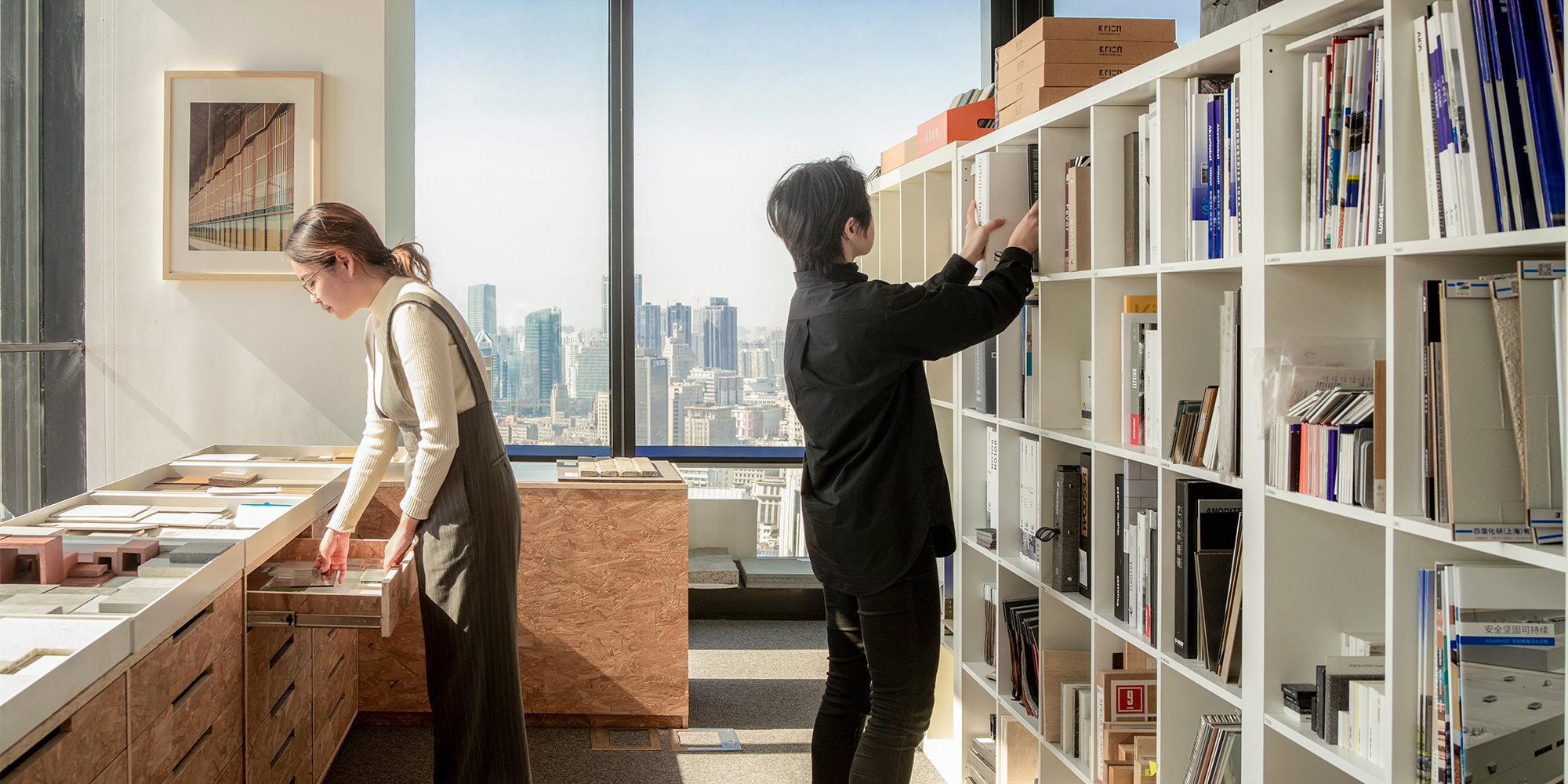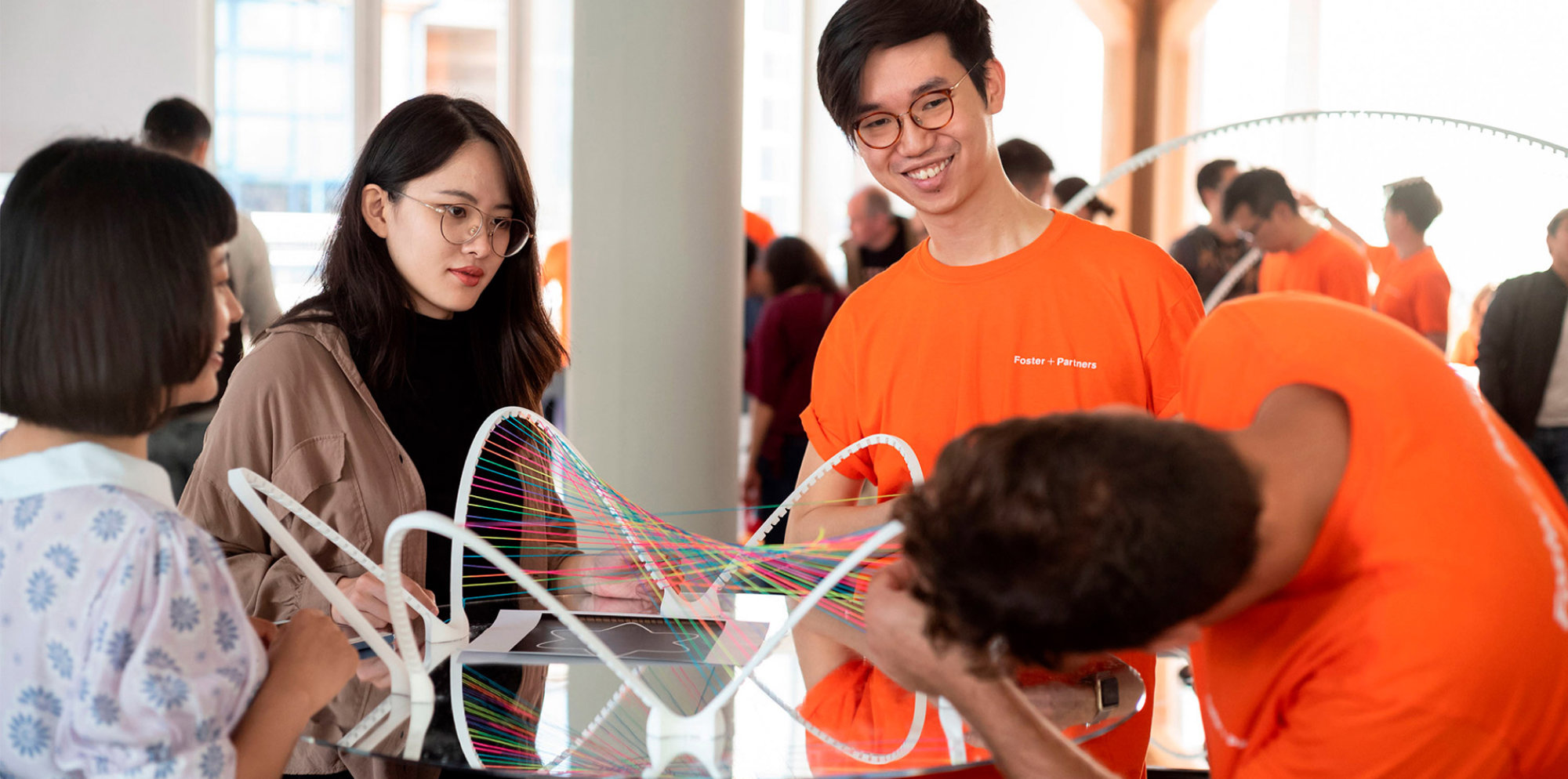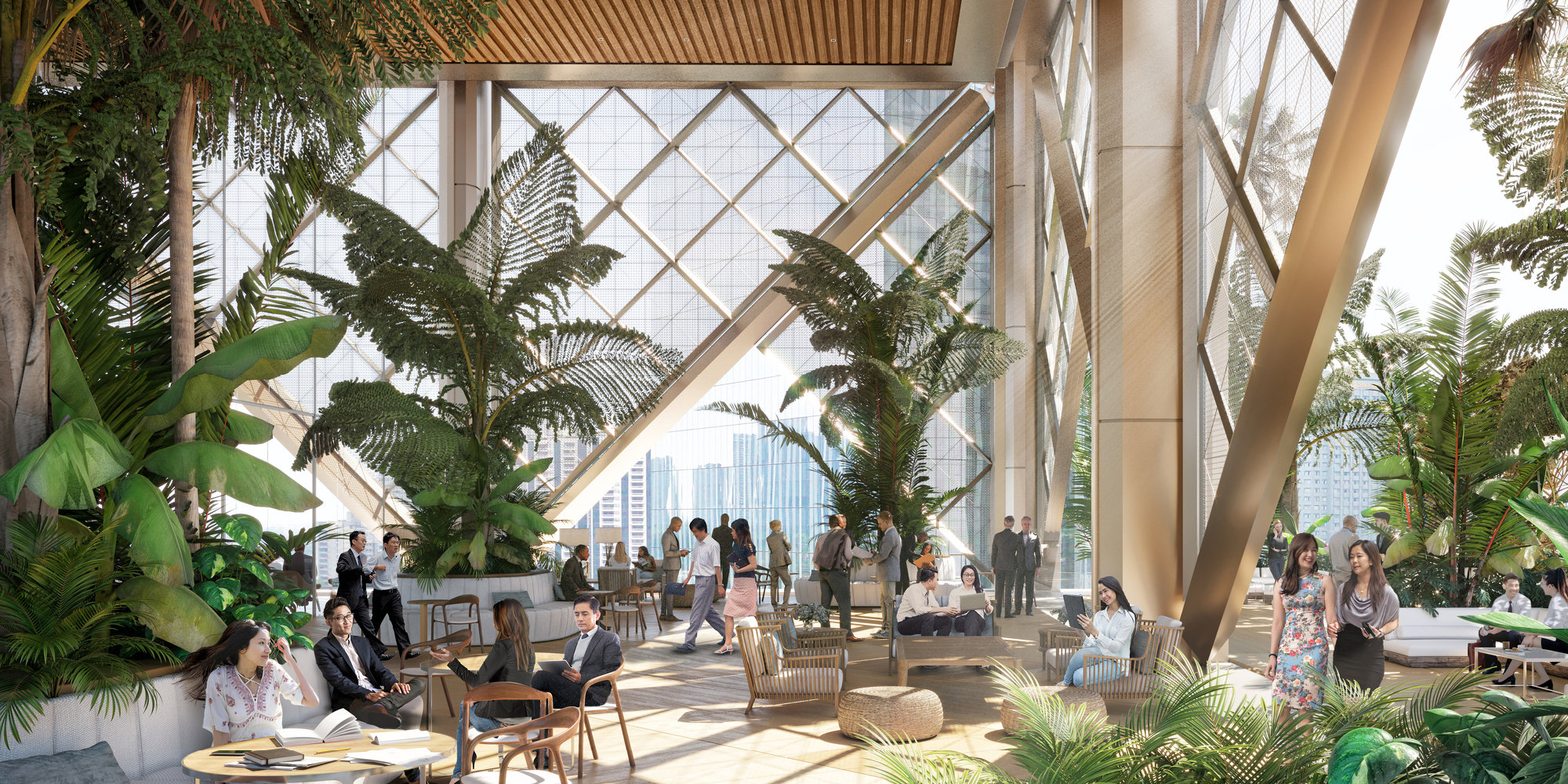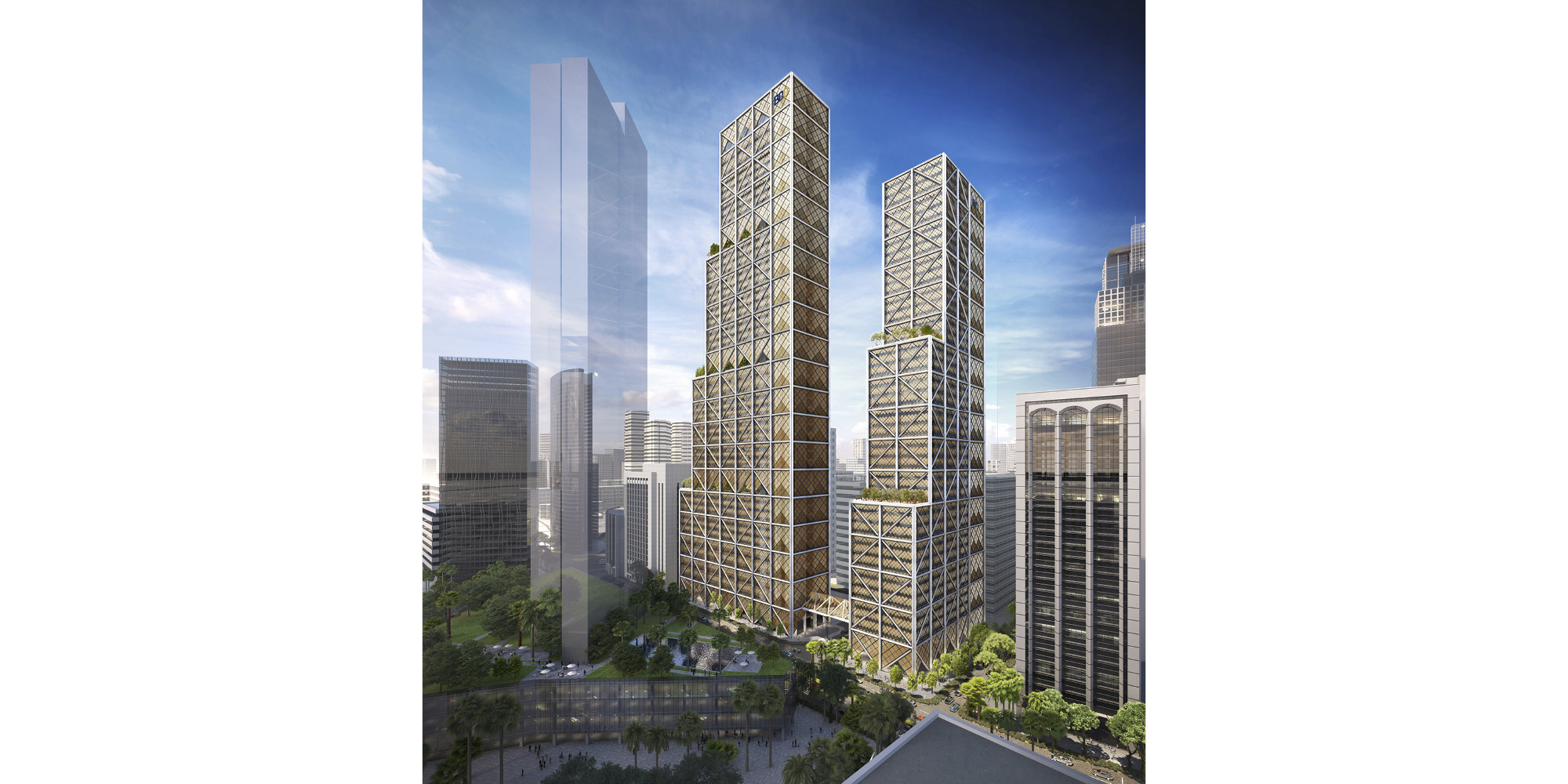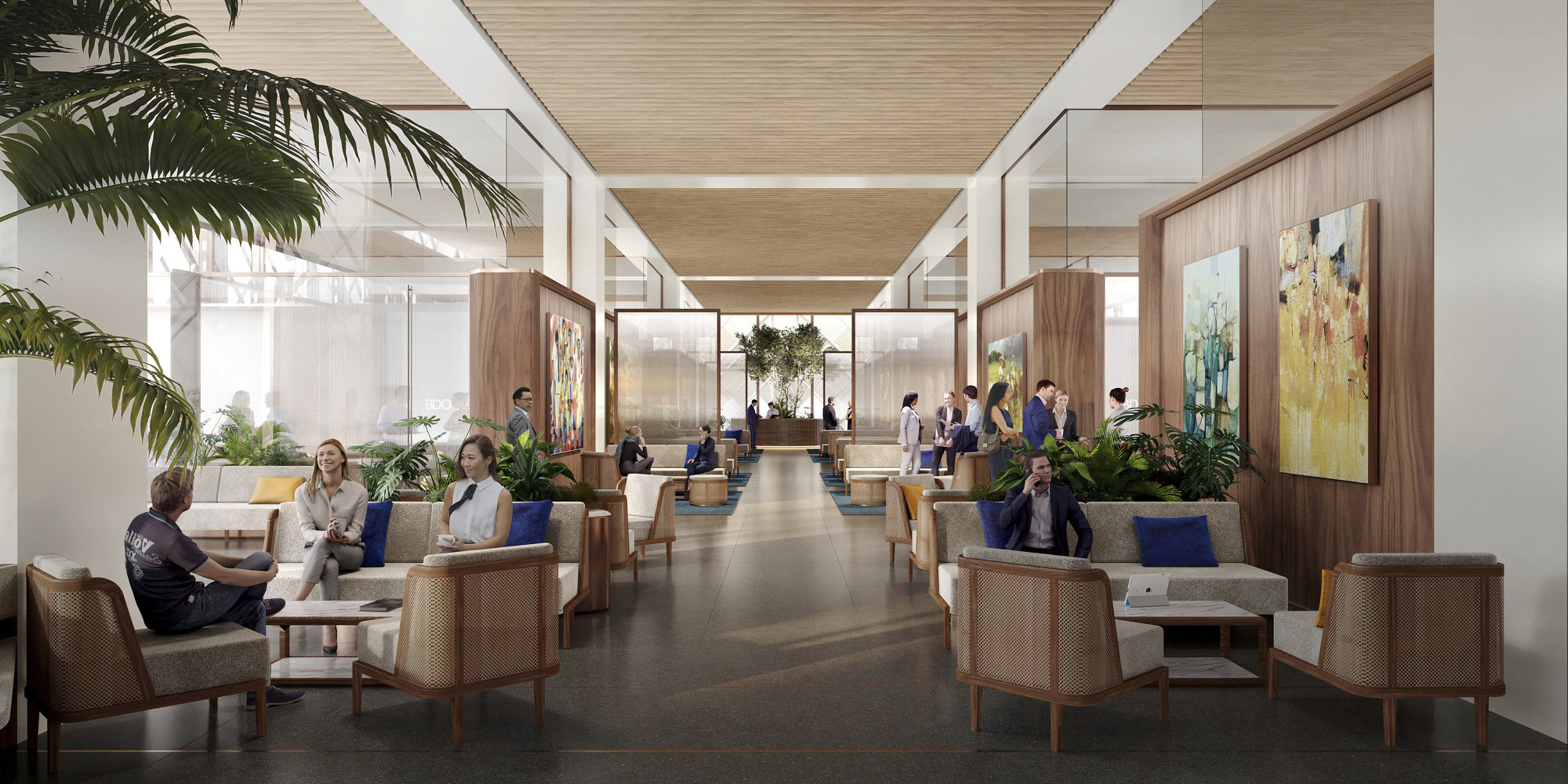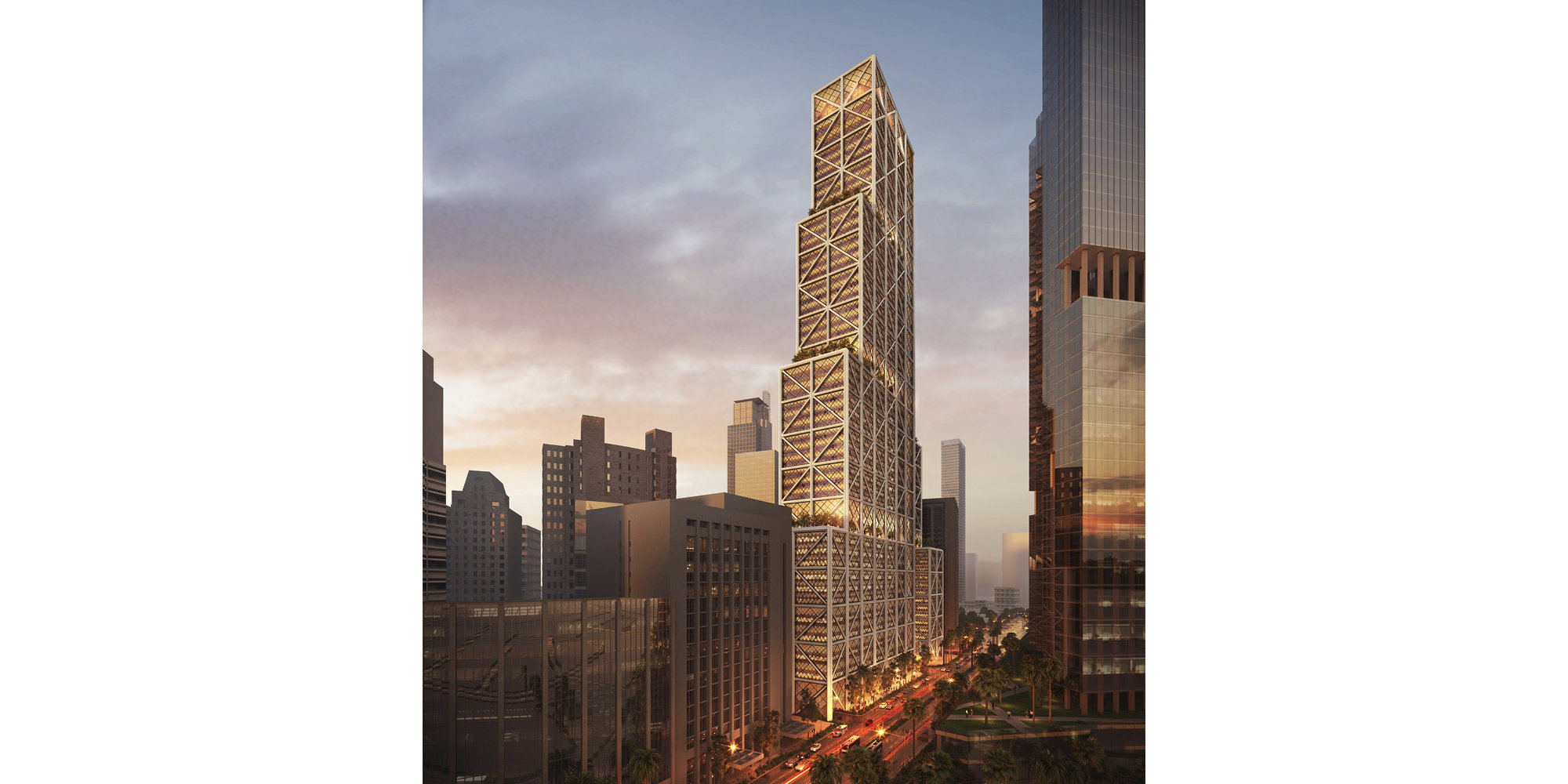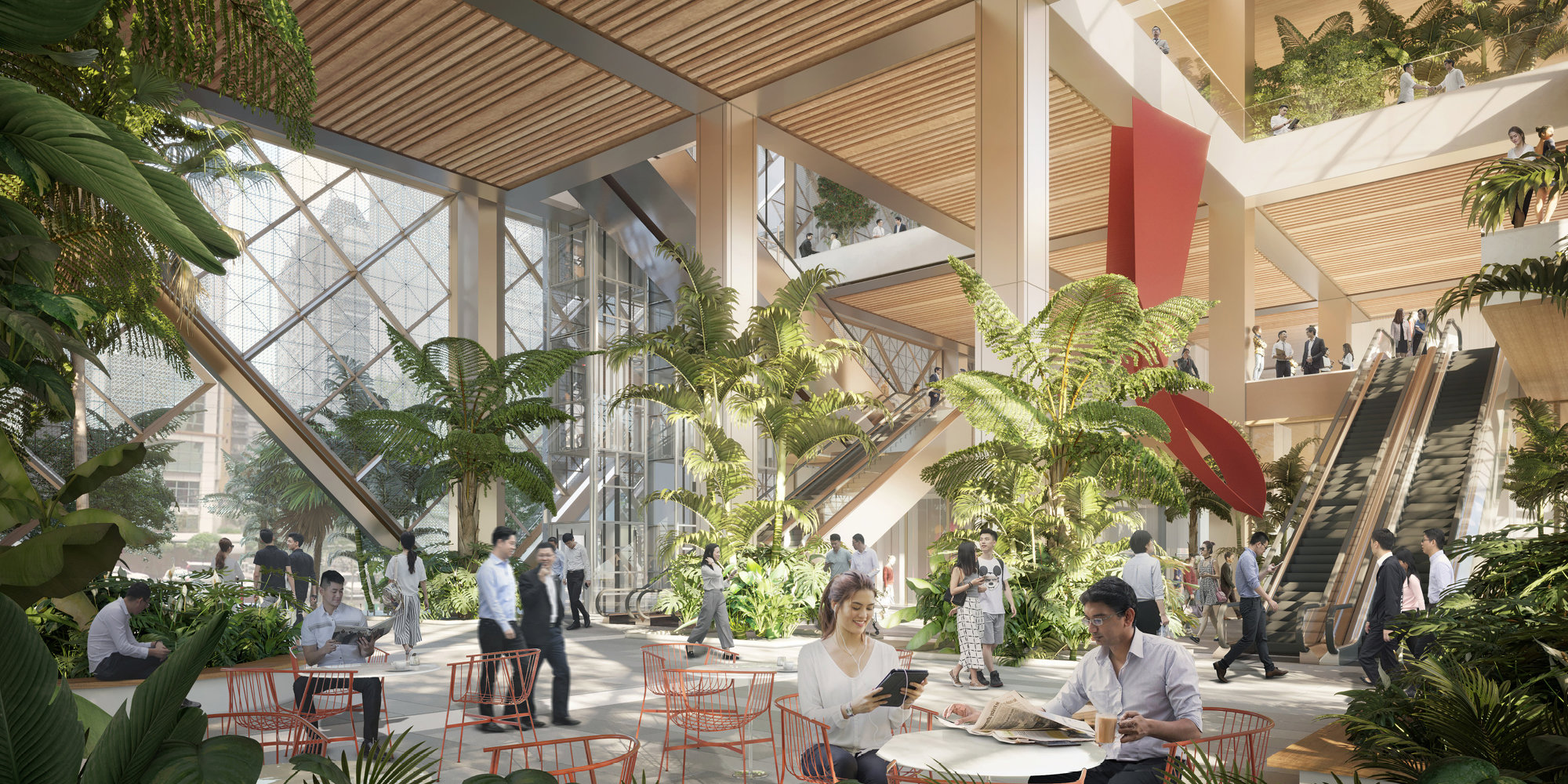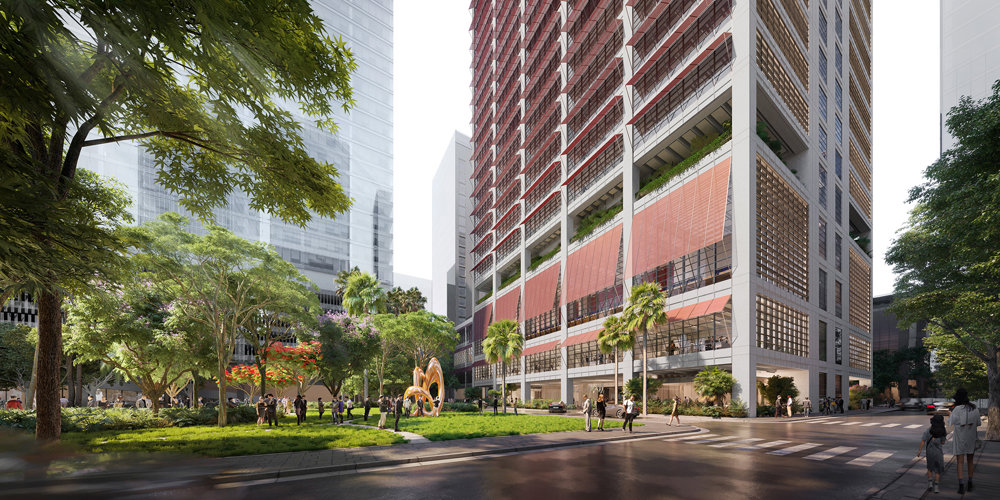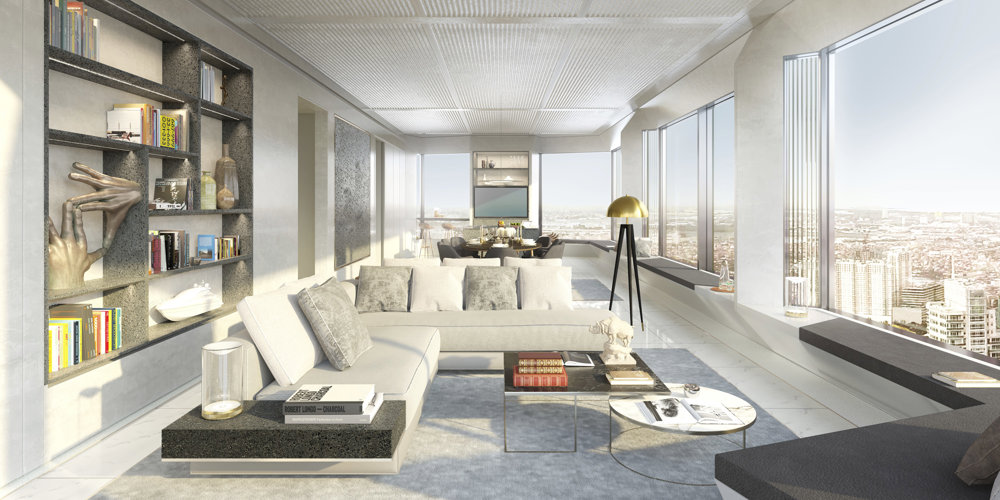BDO Unibank’s new headquarters is tailored to meet the company’s current and future needs. Departing from the typical model of airconditioned high-rise office towers in the city, the practice’s design learns from vernacular architecture and is highly responsive to the humid tropical climate.
The project makes a positive contribution to Manila by transforming five separate urban plots into a singular integrated campus. Two high-rise towers touch the ground lightly and frame a new triple volume public space that is sheltered from heavy rainfall and direct sun exposure. The open ground plane incorporates lush planting and an array of artworks, to enhance the public realm and improve the quality of life in the city.
From the ground plane, staff and visitors can access an elevated reception that connects them to the office tower and key podium spaces, including the business centre, public museum and canteen. The 3,000-metre-square meeting and event space acts as one of the primary areas for the bank to engage with its broad customer base. A new public museum hosts temporary exhibitions and showcases the bank’s permanent collection of artworks.
Massing steps back at regular intervals, with triple-storey amenity spaces located at every successive setback. The amenity floors incorporate generous outdoor terraces, which offer panoramic views of the Makati skyline and enhance employee wellbeing. Additionally, an urban farm on the roof of the auditorium annex provides space for community activities and contributes to the staff canteen’s farm-to-table approach.
The design team carried out extensive solar analysis on the façades to determine which areas receive the highest levels of sun exposure. These areas are shaded by the woven metal mesh infill screens that are inspired by traditional weaving patterns. At night, the façade is illuminated by concealed interior light fittings, such that the building appears as a softly glowing lantern.
A lightweight structural system reduces the concrete content of the buildings by more than 65,000 tons, while simultaneously improving performance in the seismic context of the Philippines.
The buildings’ operational energy has been reduced by more than 40 percent, allowing BDO Unibank to pursue a Green Mark Super Low Energy certification, which is a first in the Philippines. More than 70 percent of potable water is recycled and re-used on site and radiant cooling systems drastically reduce energy demands, while improving occupant comfort and health. The use of renewable energy sources will allow the scheme to achieve Green Mark Net Zero Energy status in the future.
